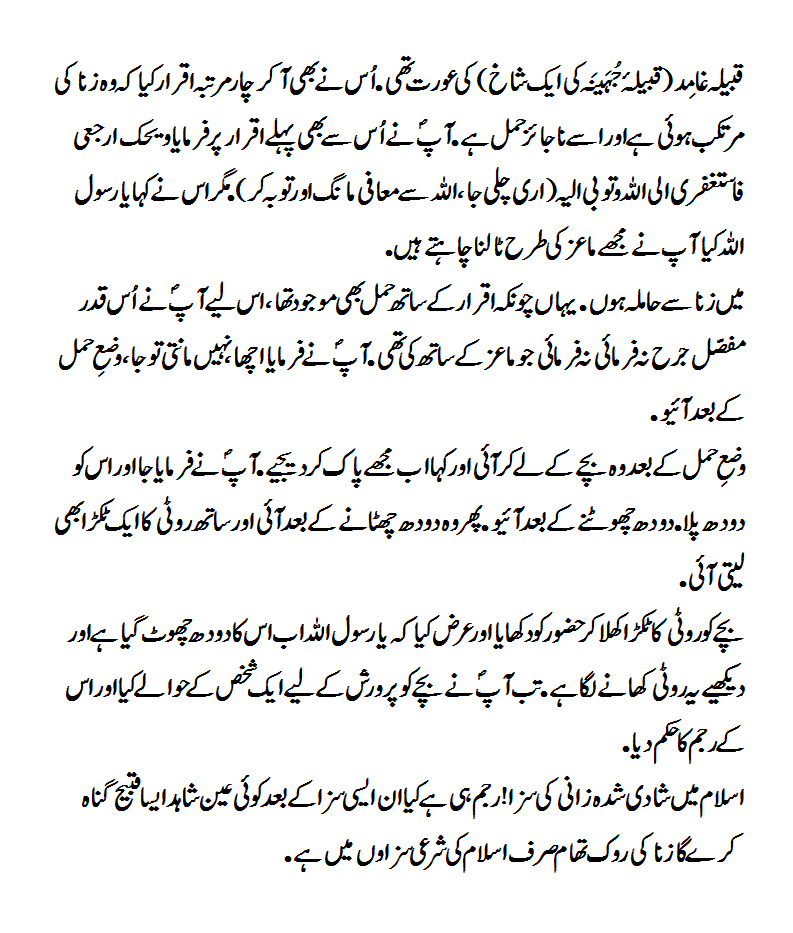Zināʾ (زِنَاء) or zina (زِنًى or زِنًا) is an Islamic legal term referring to unlawful sexual intercourse.According to traditional jurisprudence, zina can include adultery (of married parties), fornication (of unmarried parties), prostitution,rape,sodom homosexualityincest,and bestiality. Although classification of homosexual intercourse as zina differs according to legal school,the majority apply the rules of zinā to homosexuality,
mostly male homosexuality.The Quran disapproved of the promiscuity prevailing in Arabia at the time, and several verses refer to unlawful sexual intercourse,
including one that prescribes the punishment of 100 lashes for fornicators. Four witnesses are required to prove the offense.Zina thus belongs to the class of hadd (pl. hudud) crimes which have Quranically specified punishments.
Although stoning for zina is not mentioned in the Quran, all schools of traditional jurisprudence agreed on the basis of hadith that it is to be punished by stoning if the offender is muhsan (adult, free, Muslim, and having been married),
with some extending this punishment to certain other cases and milder punishment prescribed in other scenarios.The offenders must have acted of their own free will.According to traditional jurisprudence,
zina must be proved by testimony of four eyewitnesses to the actual act of penetration, or a confession repeated four times and not retracted later. Rape was traditionally prosecuted under different,
legal categories which used normal evidentiary rules.Making an accusation of zina without presenting the required eyewitnesses is called qadhf (القذف), which is itself a hadd crime…
